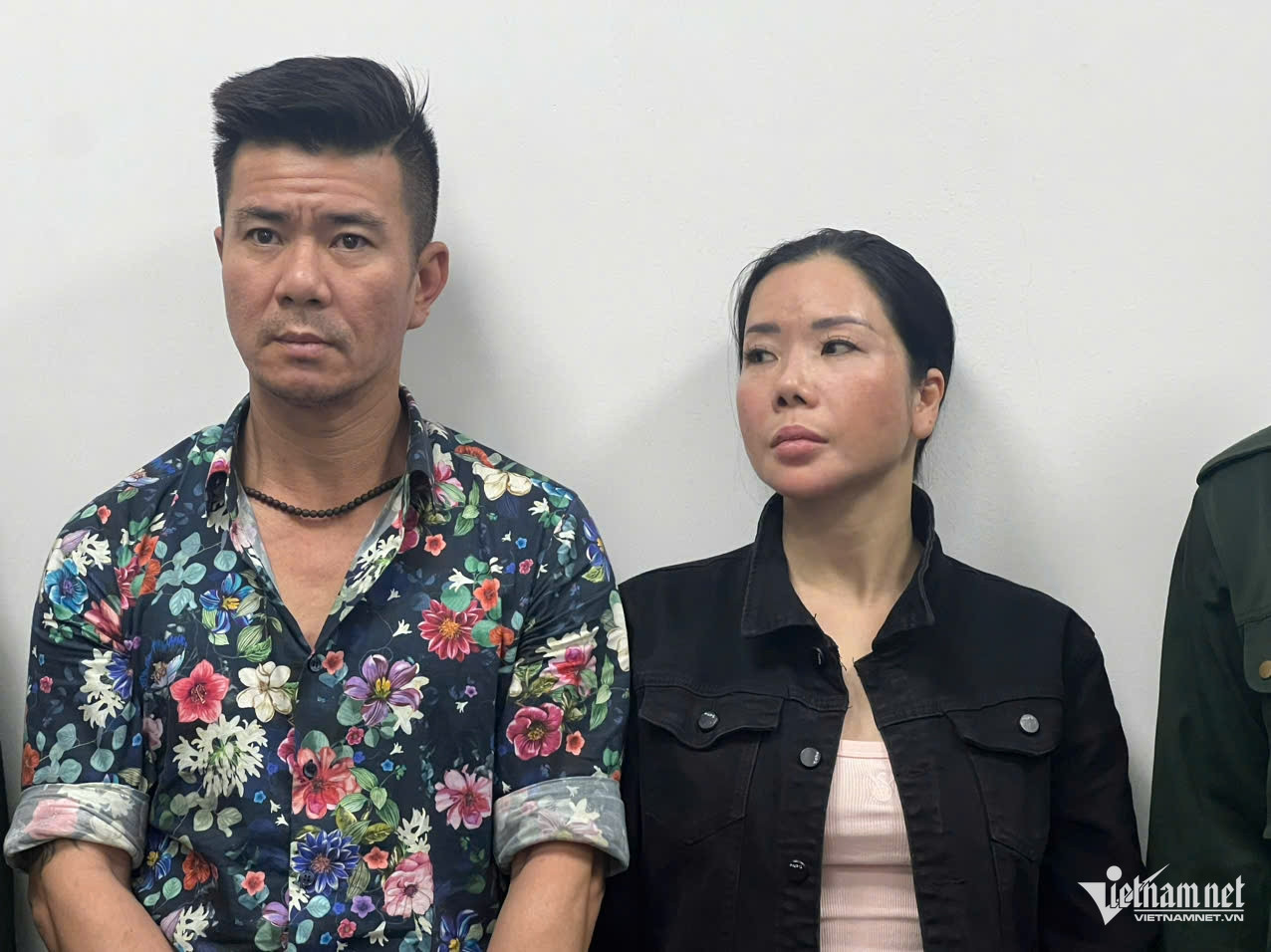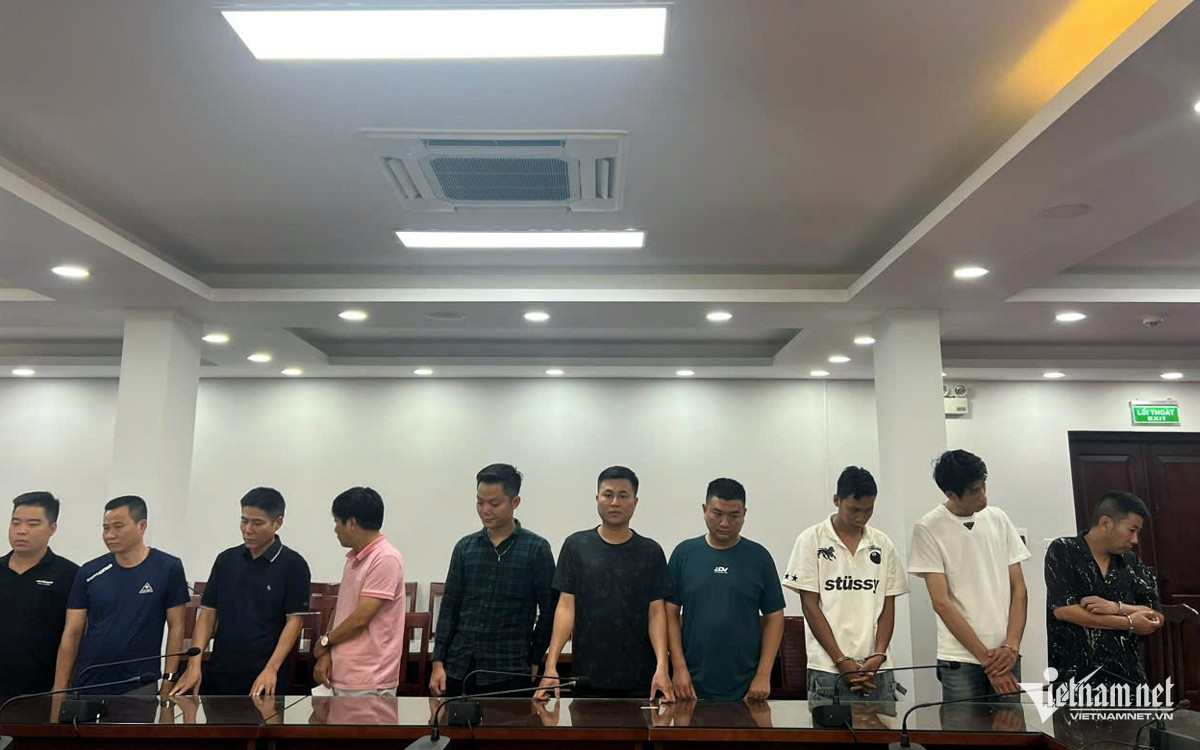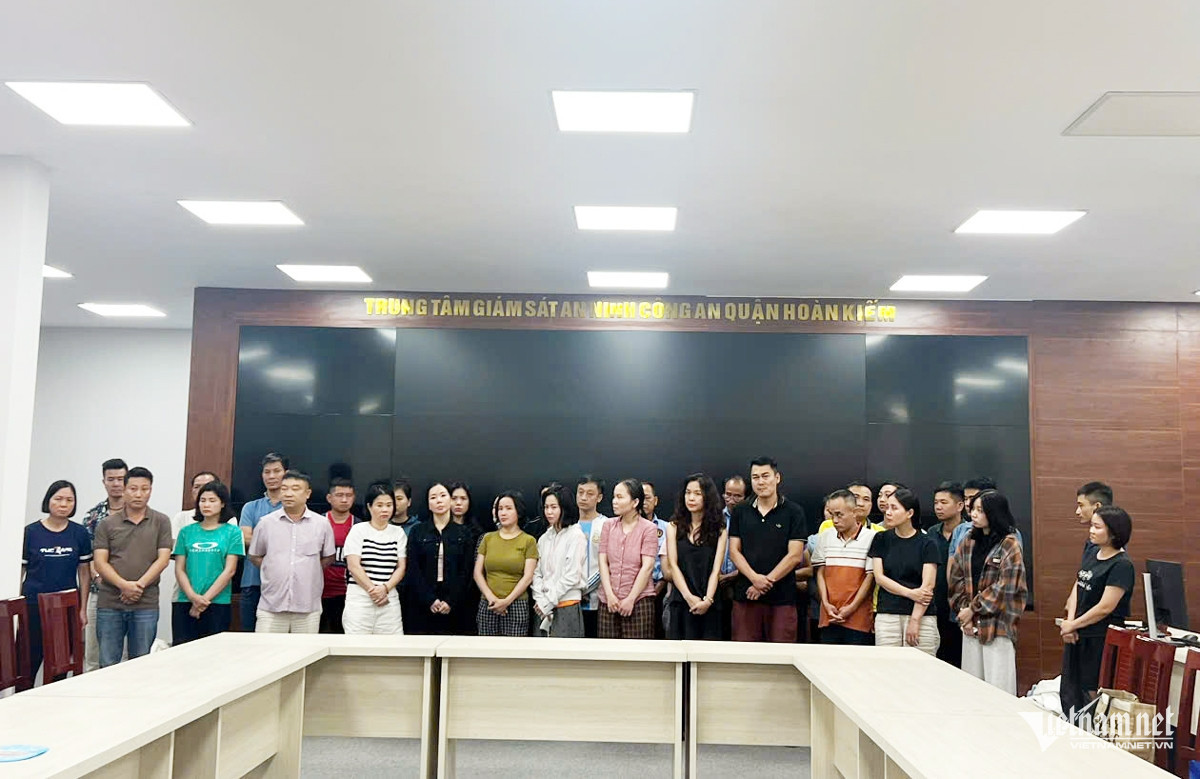A sophisticated criminal ring that turned offenders into fake psychiatric patients has been busted by the Hanoi Police Department, uncovering serious violations within the Central Institute of Forensic Psychiatry.
Caught red-handed at midnight drug party

Le Van Dong and Mai Anh at the scene.
At 11:45 p.m. on June 7, the Hanoi Police, in coordination with Thanh Hoa Provincial Police, raided a beach resort in Sam Son.
At the scene, authorities caught Le Van Dong (born 1978) and his wife Nguyen Thi Mai Anh (born 1979), residents of Thanh Xuan District, Hanoi, along with five others, hosting a drug-fueled party. Alarmingly, among the attendees were staff and patients from the Central Institute of Forensic Psychiatry.
That same night, investigators urgently summoned 14 male staff members from the Institute's Compulsory Treatment Department who had been vacationing at the same hotel as Mai Anh’s group for questioning.
Fake mental illness used to escape prosecution
Expanding their investigation, police identified Nguyen Thi Mai Anh, a repeat offender with convictions for fraud, forgery, and public disorder, as a central figure in a scheme to falsify psychiatric assessments.
Despite being under compulsory treatment, Mai Anh freely consumed drugs and mingled with outsiders. She also established connections with Institute officials, forming a well-oiled operation to produce fraudulent mental health records for criminals.
In this setup, offenders involved in serious crimes and with financial means would be introduced to the Institute through Mai Anh. With assistance from Tran Van Truong, the former director, and other experts, these individuals were falsely diagnosed with mental disorders, despite being fully sound.
In return, families of the accused paid hundreds of millions to billions of Vietnamese dong (ranging from approximately USD 4,000 to over USD 40,000) for falsified reports. Mai Anh acted as a broker, distributing the bribes among insiders. Fabricated conclusions and staged patient histories were used to secure compulsory treatment orders instead of criminal prosecution.

Suspects under arrest by police.

On June 23, the Hanoi Police officially initiated criminal proceedings under multiple serious charges: illegal possession of narcotics, organizing drug use, bribery, accepting bribes, bribery brokerage, and abuse of power while on duty.
So far, dozens of leaders and employees from the Central Institute of Forensic Psychiatry have been indicted, detained, or placed under restrictive measures. The case has shocked the public due to its severity, scale, and the involvement of a key legal-medical institution.
Nationwide investigation expands
Given the complexity and scope of the case, Hanoi Police have recommended that legal bodies across the country review all forensic psychiatric evaluations conducted since 2020, particularly in drug-related, murder, gambling, economic, and official misconduct cases.
Investigators are paying special attention to suspicious cases where serious offenders suddenly received mental health diagnoses that allowed them to evade charges.
Authorities state that this case not only exposes a deep-rooted bribery network but also raises serious concerns about oversight within forensic psychiatric evaluations and the management of specialized institutions.
Justice is being restored, but the public still awaits clear answers on who will bear the ultimate responsibility for this scandal.
Tien Dung